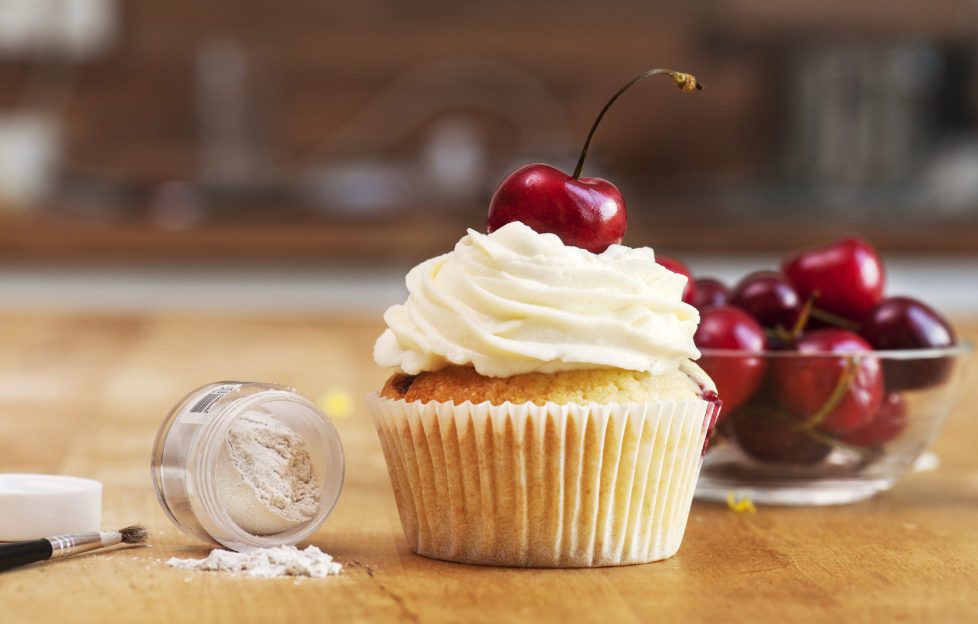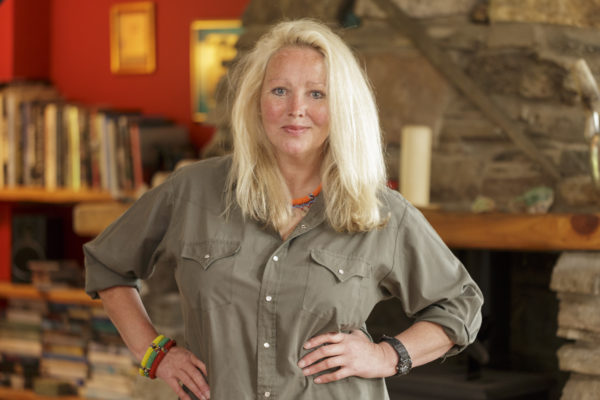Get Involved In Alzheimer’s Society Cupcake Day

Thanks to the ongoing coronavirus pandemic, the Alzheimer’s Society’s Cupcake Day will be a little different this year.
But they are still keen for everyone to participate!
Loss of appetite is one of the common difficulties faced by people with dementia. This can cause weight loss, fatigue, higher risk of infection and less muscle strength.
One of the reasons for this change in appetite is a decline in the ability to smell and taste food, which makes it harder to enjoy food and mealtimes.
This is why an activity that focuses on stimulating the senses could provide the key to encouraging them to eat, or to enjoy food again.
And baking with a loved one with dementia can be a hugely rewarding experience for the whole family.
The Alzheimer’s Society is encouraging families affected by dementia to bake together for Cupcake Day 2020. But there’s no set day this year: just bake whenever you can!

Ghillie Basan. Photograph courtesy of Ross Johnston/Newsline Media.
Cookery writer and broadcaster Ghillie Basan, who has a personal connection to dementia through her mother, says:
“There can often be a pattern of revisiting the food of their childhoods, which might have something to do with embedded memory or the way the brain regresses.”
Baking with a relative with dementia can help give them a sense of purpose and usefulness, boosting confidence and self-esteem, as well as promoting an interest in food and mealtimes.
Some may simply be happy to look on while you bake, though, and you can encourage interest by talking about the smells and what you’re doing.
Chat and laughter
“Just turn it into a bit of fun. But keep an eye on small objects such as the nozzle lids of icing tubes. These things can disappear into mouths in exactly the same way as with toddlers.
“People with dementia often respond to activity, chat and laughter, even if their reaction is slightly delayed,” Ghillie says.
“We don’t know what is going on in the brain. But if there is something to watch and animated company around them, they are often stimulated in some way and may join in with words and laughter at different moments.
“And, even if you don’t know what they are saying, respond with smiles, hugs or squeezes of the hand.”
When baking with people with dementia who are struggling with a low appetite and weight loss, go for a simple recipe that’s high-calorie, and high-protein where possible, as well as easy to chew.
Unite against Alzheimer’s and dementia
“Always encourage your loved one to drink while you are baking and chatting,” she adds.
“Depending on the character, you can turn this into some fun, too. Like with colourful drinks to match the cake, and little ‘toasts’ by clinking cups.
“Some people with dementia will delight in doing what you do, so, if you drink, they will too. Loss of appetite is a problem but dehydration can be a killer.”
People with certain health conditions like diabetes may need to avoid sugar. But thankfully that no longer means an end to cake.
In more recent years, low and zero-sugar cake recipes, as well recipes to suit people with a range of dietary restrictions, have mushroomed online.
The Alzheimer’s Society is calling on bakers across the nation to rise as one and unite against dementia.
Money raised through Cupcake Day will help them be there for people affected by dementia at this difficult time, by funding the Dementia Connect support line.
Find out more at cupcakeday.org.uk.
For some great cake recipes, take a look at our Cookery pages.










